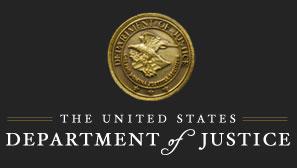
Court Authorizes Service of John Doe Summons Seeking the Identities of U.S. Taxpayers Who Have Used Debit Cards in Furtherance of Tax Evasion
A federal court in Montana recently unsealed an order authorizing the Internal Revenue Service (IRS) to serve a John Doe summons on Michael Behr of Bozeman, Montana, seeking information about U.S. taxpayers who may hold offshore accounts established by Sovereign Management & Legal LTD (SML), a Panamanian entity. Specifically, the IRS is seeking records of U.S. taxpayers who, during the years 2005 to 2016, had been issued a “Sovereign Gold Card” debit card that could be used to access the funds in those accounts in such a manner as to evade their obligations under internal revenue laws. The IRS uses John Doe summonses to obtain information about possible violations of internal revenue laws by individuals whose identities are unknown.
U.S. taxpayers seeking to hide their offshore assets often utilize the services of offshore trusts and corporate service providers that open bank accounts, create corporations and other entities, and serve as nominee officers. In its petition seeking the issuance of the John Doe summons, the United States alleges that SML advertises various “packages” to allow taxpayers to hide their assets offshore. These packages include corporations owned by other entities (to include fake charitable foundations), all held in the name of nominee officers provided by SML. SML then opens bank accounts for these entities and provides debit cards in the name of the nominee to the taxpayer. By using such cards, taxpayers seek to access their offshore funds without revealing their identities. U.S. District Court Judge Brian Morris found that there is a reasonable basis for believing that U.S. taxpayers may be using the Sovereign Gold Card to violate federal tax laws.
“The Department of Justice and the IRS are committed to stopping the use of foreign bank accounts to evade U.S. tax laws,” said Acting Assistant Attorney General David A. Hubbert, head of the Justice Department’s Tax Division. “This John Doe summons is yet another example of how we are using all available tools to identify, investigate and hold accountable those who cheat our nation’s tax system by hiding money offshore, as well as those individuals and entities facilitating U.S. taxpayers engaged in this conduct. The time to come forward and come into compliance is running short, and those who continue to violate U.S. tax and reporting laws will pay a heavy price.”
“In seeking this John Doe summons, the IRS wants to ensure that certain pre-paid payment card users are meeting their responsibilities to properly pay their taxes,” said IRS Commissioner John Koskinen. “We are taking this step as part of our longstanding efforts against the use of secret offshore accounts. This action will help ensure that pre-paid cards aren’t being inappropriately used to repatriate hidden income and avoid taxes.”
This case is part of an ongoing effort to stop U.S. taxpayers from using offshore financial accounts as a way to evade federal tax laws. The Justice Department previously obtained a similar order from the U.S. District Court for the Southern District of New York, authorizing issuance of eight separate John Doe summonses on bank and other entities for information related to SML and its customers in the United States. The evidence submitted in this request to issue a John Doe summons was built in part on information provided in response to the earlier summons.
Federal tax law requires U.S. taxpayers to pay taxes on all income earned worldwide. U.S. taxpayers must also report foreign financial accounts if the total value of the accounts exceeds $10,000 at any time during the calendar year. A deliberate failure to report a foreign account can result in a penalty of up to 50 percent of the amount in the account at the time of the violation. U.S. taxpayers are reminded that the IRS currently has in place an Offshore Voluntary Disclosure Program where U.S. taxpayers can come forward and disclose their offshore accounts and income. For more details, please go to the IRS’s website: www.irs.gov/uac/2012-Offshore-Voluntary-Disclosure-Program or https://www.irs.gov/individuals/international-taxpayers/options-available-for-u-s-taxpayers-with-undisclosed-foreign-financial-assets.
Additional information about the Tax Division and its enforcement efforts may be found on the division’s website.
